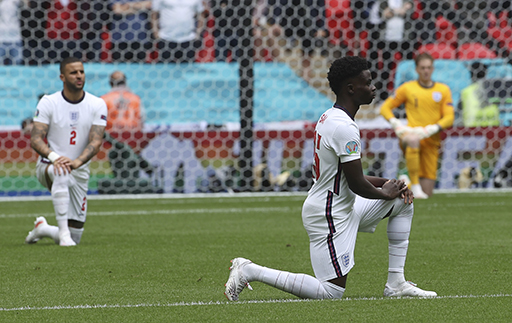2 When sport becomes political

The relationship between sport and politics has been a controversial and complicated one. Over the years, many sports organisers have rejected the notion that the two exist in parallel with one another. In 1956, Avery Brundage, then President of the International Olympic Committee, famously declared that sport had little to do with politics (Grix, 2015). While others have used sport for their own political gain, e.g., Adolf Hitler and the 1936 Berlin Olympics, or Qatar hosting the men’s World Cup in 2022, to showcase their development on the world stage.
Activity 2 High-profile examples of when sport became political
Below is a list of examples where our political themes manifest within sport. There are two tasks here:
- Identify which examples you are already aware of (don’t worry if you aren’t familiar with all, or many, of them).
- Take this further by considering how these examples relate to the six ways that sport can be political outlined in the previous section. For reference, these were: power relations, nationalism and identity, inclusion or segregation, activism, conflict and commercialisation.
- Jesse Owens challenging racial supremacy at the 1936 Berlin Olympics
- Joe Louis (USA) vs Max Schmeling (GER) boxing matches in 1936 and 1938
- Jackie Robinson breaking baseball’s colour barrier in 1947
- Muhammed Ali’s ban from boxing in the 1960s
- The Black Power Salute at the 1968 Mexico City Olympics
- Terrorism at the 1972 Munich Olympics
- Battle of the Sexes tennis match in 1973
- Boycotts of the 1980 Moscow and 1984 Los Angeles Olympics
- Justin Fashanu becoming the first ‘out’ gay professional footballer in 1990
- Colin Kaepernick taking the knee during the 2016 United States NFL season
- American athlete strikes in 2020
- Poppies on English football club shirts around Armistice Day each year
Discussion
This activity is used to show you how consistently sport and political themes have been associated with one another since the 1930s. By considering how these examples relate to our six political themes, you might notice that some of these events connect with more than one theme. For example: through unpacking how Jesse Owens challenged German racial supremacy ideology at the 1936 Berlin Olympics you could identify the following themes:
- Segregation – while Owens himself wasn’t segregated from the Olympics, many others were. In fact, only 18 out of the 359 American athletes were Black (yet they contributed a quarter of all medals won by the US team).
- Power relations – in terms of how Germany used the Games to present their Nazi regime to the world.
- Nationalism and identity – the patriotic symbol of Owens as an American national, challenging German ideologies.
This example goes to show that explaining the association between sport and political themes is neither straightforward, nor one-dimensional.

As you have seen, the twentieth century saw innumerable examples of political themes permeating through sport. More recently, sport has become a prominent site for the Black Lives Matter movement, with athletes across the world among the campaign’s most visible advocates through national anthem protests and the act of taking the knee, showing clear association with the political theme of activism.
